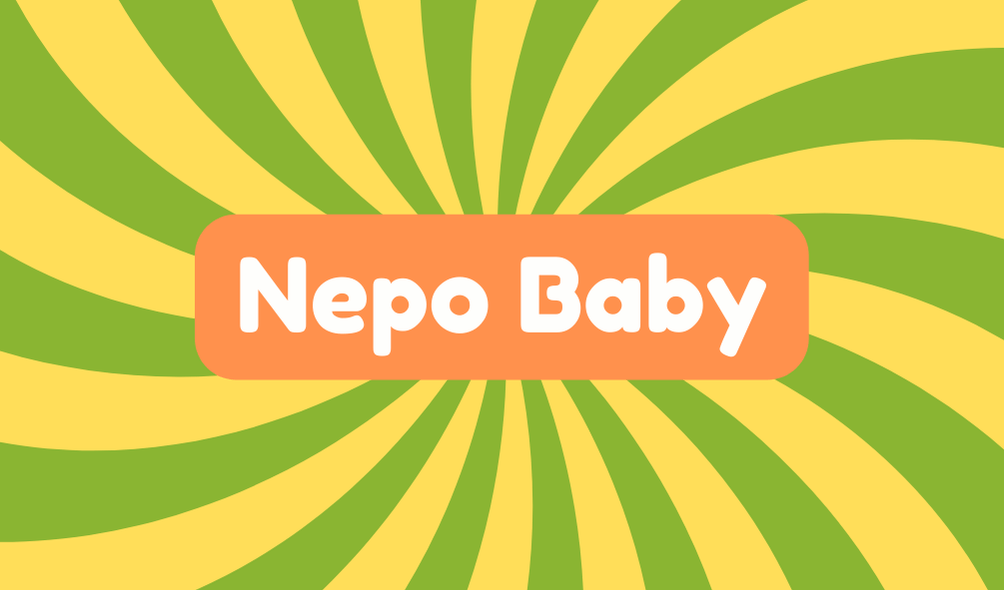"Nepo baby" is slang for someone who gains advantages mainly due to family connections, especially in fields like entertainment. Originating in the early 2000s, this term has become a focal point in discussions about nepotism and privilege. Examples include an actor landing roles due to their famous parents or a model receiving favoritism at fashion shows. Synonyms like "trust fund baby" and "silver spoon baby" reflect varying perspectives on privilege. The ongoing debate challenges assumptions about meritocracy and equity, highlighting inequalities in society. There is much more to explore about the implications of this trend and its relevance today.
Synonyms
Synonyms play an essential role in understanding the concept of "nepo baby," encapsulating the idea of privilege derived from familial connections. Terms like "nepotism baby," "silver spoon baby," and "trust fund baby" illuminate the nepo culture, reflecting various nuances of privilege perception. Each synonym carries distinct implications, often evoking differing societal reactions.
- Nepotism baby: Emphasizes direct benefits of family ties.
- Silver spoon baby: Suggests a more neutral stance on wealth.
- Trust fund baby: Focuses on financial security stemming from family resources.
These variants expose the complexities within societal attitudes towards privilege while highlighting how familial connections can overshadow merit. This nuanced vocabulary invites critical reflection on the ongoing discourse surrounding connectivity, success, and fairness in society.
Example of Sentences
While discussions around the term "nepo baby" often evoke strong opinions, the phrase can be effectively illustrated through various contextual examples. Consider these scenarios that highlight the impact of celebrity connections on opportunities:
- A rising model walks the runway, her feedback influenced by her famous lineage.
- A young actor lands a leading role, sparking debates about fairness in auditions.
- An emerging musician's success is scrutinized after revealing family ties in the industry.
These examples showcase how nepo babies might benefit from their backgrounds, inviting skepticism regarding the meritocracy of talent. As societal debates continue, understanding the nuances behind this terminology becomes increasingly important, prompting reflection on the broader implications within entertainment and beyond.
Origin
The term "nepo baby" emerged in popular discourse in the early 2000s, gaining notable traction and cultural significance by 2022. Rooted in nepotism trends, this phrase encapsulates the complexities of celebrity culture, where the advantages of familial connections often overshadow merit-based achievements. As children of famous actors and influential figures navigate the entertainment industry, they exemplify a concerning dynamic that underscores systemic advantages. The rise of social media and ongoing discussions around privilege have fueled this dialogue, prompting skepticism regarding the fairness of opportunities afforded to "nepo babies." While some embrace the benefits conferred by their lineage, critical conversations around meritocracy and equality persist, shedding light on the inequalities prevalent in contemporary society.
Collocations
Collocations related to the term "nepo baby" illustrate its nuanced usage in contemporary discourse. These pairings encapsulate the cultural implications and industry biases that accompany the term, making it a focal point of discussion.
- "Nepo baby privilege" highlights how familial connections can create advantages.
- "Public perception of nepo babies" reveals society's often skeptical view on their success.
- "Nepo baby backlash" reflects the criticism surrounding perceived unfair advantages in opportunities.
These collocations indicate a broader conversation about privilege and meritocracy, encouraging us to question the validity of success attributed to lineage. As we analyze these phrases, we disclose the complexities of societal values, fostering a dialogue that challenges traditional norms in the entertainment industry and beyond.
How to Use in Everyday Language
Understanding how to incorporate the term "nepo baby" into everyday language can enhance discussions about privilege and social dynamics. In conversations about the nepo baby dynamics, use examples of well-known individuals who have benefited from famous family influence. For instance, if discussing a recent film, reference the actor's famous parent, highlighting how this connection potentially shaped their career. This approach invites critical reflection on merit versus privilege. Engaging with this term allows for a discussion of societal structures and raises awareness about unequal opportunities in various fields. By using "nepo baby," you challenge assumptions and encourage deeper exploration of how family backgrounds can impact success, prompting conversations about fairness and ethics in both entertainment and beyond.
Why Is It Still Relevant Today?
As discussions surrounding privilege and access to opportunities continue to evolve, the concept of "nepo babies" remains highly pertinent in contemporary discourse. This term holds cultural significance as it crystallizes the ongoing critique of nepotism in various industries, especially entertainment. The societal implications of being a nepo baby reveal deep-seated inequalities, raising questions about meritocracy and fairness. While some argue that familial connections can bolster creativity and talent, skepticism abounds regarding whether these advantages truly reflect ability or simply lineage. As younger generations challenge traditional viewpoints, the debate surrounding nepo babies fosters essential conversations about opportunity, equity, and the broader dynamics of privilege. Understanding these issues is imperative for steering through today's complex societal landscape.







